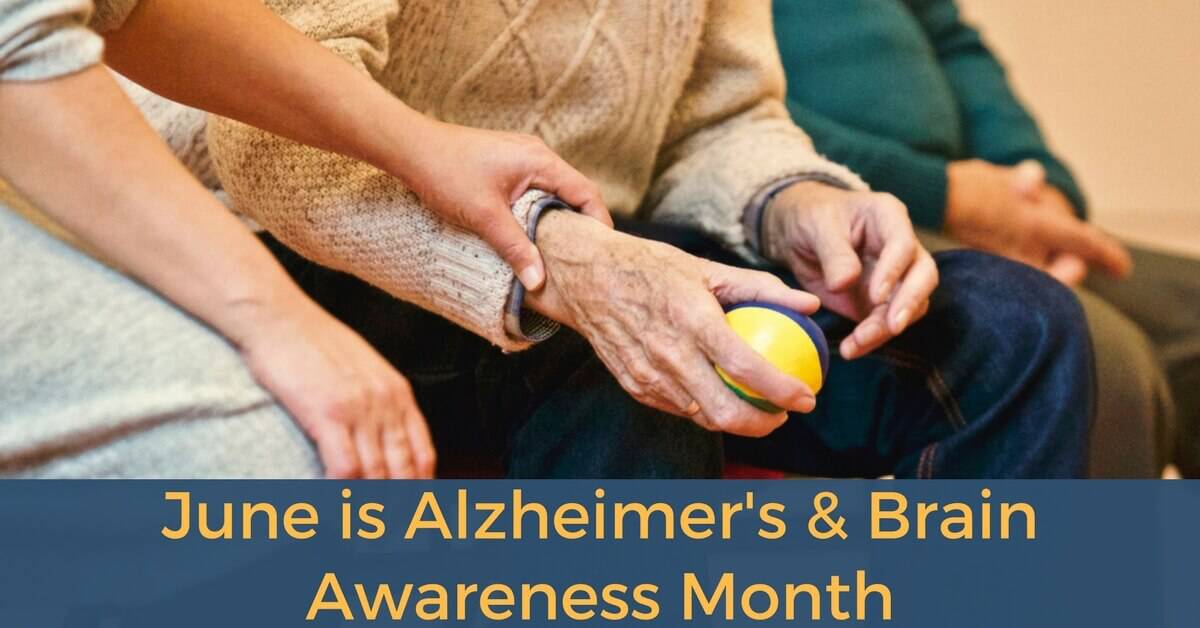In honor of Alzheimer’s & Brain Awareness Month, we at Desert Valley Audiology have decided to dedicate a blog post to discussing the correlation between hearing loss and cases of dementia – including Alzheimer’s.
What is Alzheimer’s disease, exactly?
Worldwide, about 47 million people suffer from some form of dementia (http://www.alz.org/global/?gclid=CNm_2KWxv9QCFYXnGwoddGEJAA ). Alzheimer’s disease is the most common type of dementia that is typically associated with aging; however, it is not just an age-related disorder. While most people with Alzheimer’s are 65 or older, there are currently about 200,000 Americans under the age of 65 with the disease (http://www.alz.org/alzheimers_disease_what_is_alzheimers.asp ). Alzheimer’s causes difficulties with thinking, memory and behavior. It is progressive, which means it worsens over time. Early signs of Alzheimer’s include difficulties learning new information and problems memorizing simple tasks. Over time, however, a person with Alzheimer’s will struggle to hold a conversation and react to their environment.
There is currently no cure to Alzheimer’s disease, which is why there is a worldwide effort to improve awareness, and increase research efforts to find more preventative measures to delay onset, better ways to treat it, and stop it’s development all together.
What’s the connection with hearing loss?
Many studies have been cited noting the correlation between hearing loss and dementia – including Alzheimer’s. A 2013 study conducted by Dr. Frank Lin of John Hopkins University found that those with severe hearing loss were 24% more likely than their peers with healthy hearing to experience symptoms associated with dementia (http://www.aarp.org/health/brain-health/info-07-2013/hearing-loss-linked-to-dementia.html ). The exact reason for the connection remains unclear. Two plausible explanations include: increased listening effort decreases cognitive resources in other areas of the brain, and the social isolation that is often the case for those with untreated hearing loss.
For an interesting perspective on the correlated relationship between dementia and hearing loss, read this 20 Questions article with Piers Dawes (http://www.audiologyonline.com/articles/20q-hearing-loss-and-dementia-19111). Dawes is a senior lecturer in audiology at the University of Manchester. He is also a “developmental neuropsychologist with a PhD in experimental psychology from the University of Oxford”. Dawes discusses the possible connections between the two impairments and how they could potentially influence each other.
Do hearing aids help?
While there isn’t definitive proof amongst the medical community that hearing aids delay or prevent dementia including Alzheimer’s, a 2015 study shows some exciting results. The study was conducted in France by the Personnes Agèes QUID cohort (PAQUID). PAQUID is a cohort dedicated specifically to study brain aging. The study included 3,670 adults over a span of 25 years. Donald Schum, PhD, Vice President of Audiology and Professional Practice for Oticon, Inc., notes that the study indicated that people with healthy hearing are at the same risk for age-related dementia than their counterparts who are hearing impaired but use hearing aids. In contrast, those with hearing loss that do not use hearing aids are at an increased risk of developing dementia symptoms. He states, “with this study, we are seeing for the first time evidence that hearing aids are a prevention against accelerated cognitive decline in later years. That’s a powerful motivator for the more than 75% of people with hearing loss who could benefit from hearing aids but are reluctant to address their hearing health.”
How can I contribute to Alzheimer’s & Brain Awareness Month?
If you or someone you love has been affected by Alzheimer’s or another form of dementia, or you are simply passionate about the cause, there are many ways for you to get involved. Purple is the official color of Alzheimer’s & Brain Awareness Month. Participants are encouraged to wear purple all month long and post their purple gear on social media with the hashtag #ENDALZ or #MyAlzStory. The Alzheimer’s Association also has a Facebook profile filter you can use to remind all your friends about the importance of Alzheimer’s research. Go to the Alzheimer’s Association website (http://alz.org/abam/) to share your Alzheimer’s story with supporters around the globe.
Most importantly, you can register here (http://act.alz.org/site/TR?fr_id=9704&pg=entry) to participate in “The Longest Day” on June 21st. To register, all you need to do is commit to doing one thing you love – this can be anything from dancing to running to creating art to volunteering in honor of those effected by Alzheimer’s. Raise money or simply participate – the choice is up to you.

